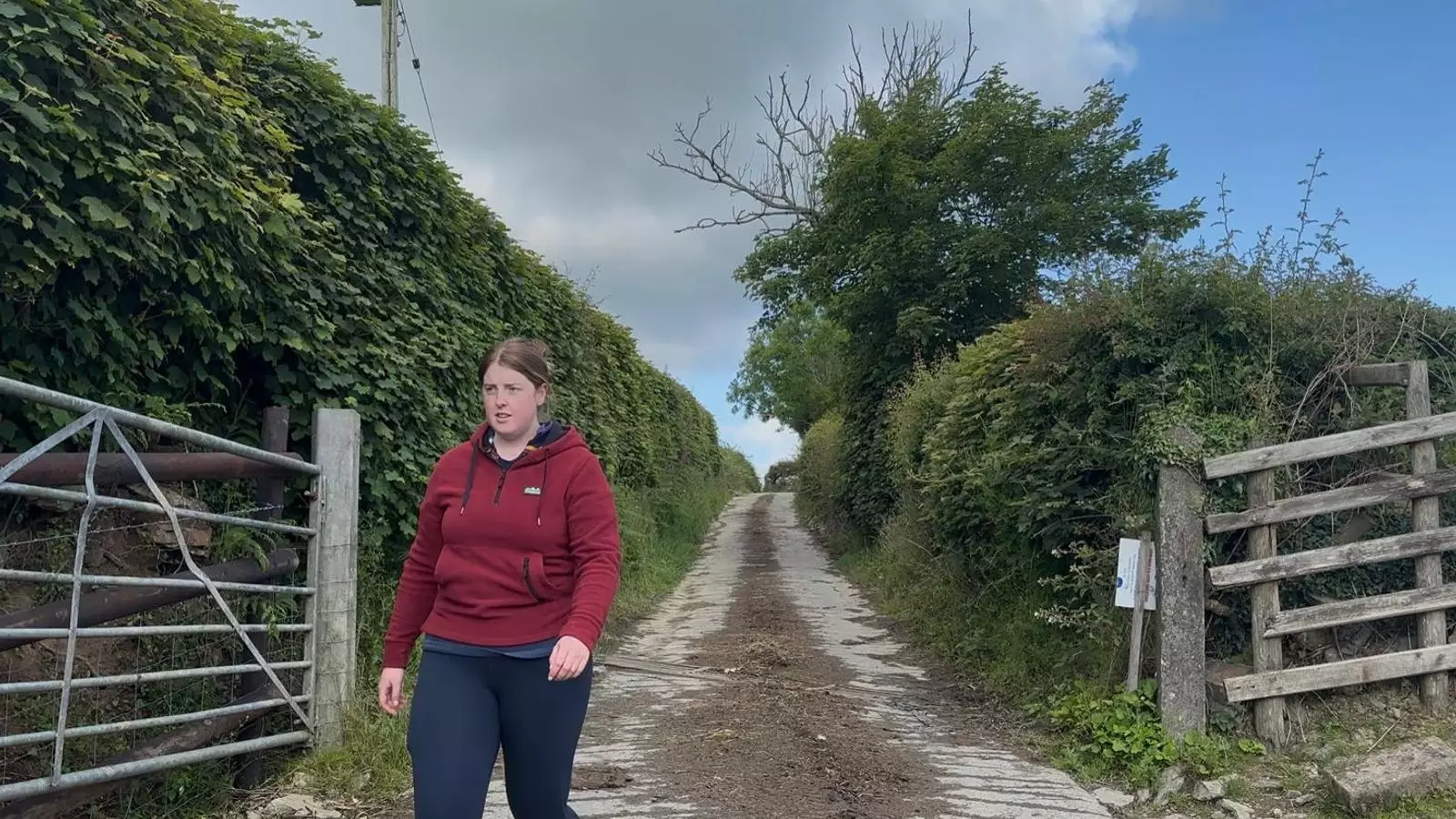In a distressing turn of events, rural crime in Wales has reached staggering heights, with the latest report revealing an estimated cost of £2.8 million last year—a shocking 18% increase from the previous year. In this moment of national crisis, Wales stands out as the only UK nation to experience a rise in such crimes, highlighting a troubling trend that directly impacts the heart of the rural economy. For farmers like Caryl Davies from Pembrokeshire, the implications are personal and painful. The theft of her quad bike—a vital tool for daily operations—has left her family feeling vulnerable and unsafe in their own home, tossing aside the idyllic notion of rural tranquillity.
A Farmer’s Tale of Vulnerability
At just 21, Caryl’s experience embodies a deeper narrative of insecurity that many in the agricultural sector face. Her farm, which relies on the quad bike for day-to-day tasks, was rocked by the unexpected theft; a stark reminder that even the most serene settings can harbor criminal intentions. “We’d rely on the bike day in and day out,” she explained, emphasizing the necessity of such equipment. With a replacement cost nearing £10,000, the financial strain adds to the existing challenges farmers endure. As if running a business in a precarious economic climate isn’t difficult enough, farmers are now being targeted as if their hard work and livelihoods are up for grabs.
Financial Strain and Psychological Impact
The emotional and financial toll of rural crime cannot be understated. Caryl’s family, who were once assured of their safety, are now left grappling with fear and uncertainty. They have opted for an enhanced CCTV system, an added expense that many may not afford. “For some farmers, this is spare money that we haven’t really got,” she lamented. This expenditure burdens an already struggling sector, where profit margins are slim and unpredictability looms over daily operations. This isn’t merely theft; it’s an insidious attack on the very fabric of rural life.
In a broader sense, the figures cited by NFU Mutual paint a paradoxical picture of rural crime across the entirety of the UK. While crime has decreased nationwide—from £52.8 million to £44.1 million—the increase in Wales suggests a localized epidemic, one that may require tailored intervention rather than piecemeal national strategies.
Organized Criminal Networks Targeting Vulnerable Farmers
James Bourne, a farmer from Pontypool, illustrates the escalating crisis further. Since moving to his farm, he has witnessed over 200 sheep disappear from common land in just four years. “The way agriculture is at the moment anyway, we’re struggling to make ends meet,” he stated, his frustration palpable. His plight is symptomatic of a growing trend where organized criminals strategically target rural areas, hitting multiple farms in rapid succession. The heists may be opportunistic, but their methods are increasingly systematic, leaving farmers questioning their ability to safeguard their livestock and property.
This sophisticated approach indicates a shift in tactics wherein criminals are employing technology—including drones—to scout vulnerable areas. The implications are chilling; criminals are not just thieves; they are becoming strategists who exploit weaknesses in rural defenses with a level of ruthlessness that demands urgent action.
The Response from Authorities and Community Vigilance
As anxiety pervades the farming community, law enforcement agency responses appear underwhelming. While promising advances in technology such as DNA asset-marking kits have been acquired, the Dyfed-Powys Police have acknowledged the challenges posed by vast rural expanses, creating doubt among farmers regarding the adequacy of protection. The sentiment of helplessness often permeates through conversations, with communities hesitating to report suspicious activity, fearing their concerns will fall on deaf ears.
This growing crisis demands a more robust and collaborative approach from all stakeholders, including farmers, local governments, and law enforcement agencies. Temporary Chief Superintendent Jason White’s assertion that resources will be increased in the rural crime team does inspire some hope, but words alone cannot quell the rising tide of anxiety that grips these communities.
Farmers like Caryl and James stand at the frontline of a deepening crisis, championing the cause of rural safety. It is imperative that society—and specifically, the authorities—recognizes the value of agriculture not just as an economic contributor but as the lifeblood of rural culture and identity. This issue transcends mere statistics; it’s about family legacies, community cohesion, and the very essence of rural life itself. As farmers demand safety and support, the obligation falls on all of us to ensure their voices are heard, and their rights protected.



Leave a Reply